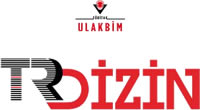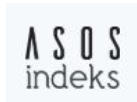Eğitimde Drama Araştırmaları:1975-2022 (Drama Research in Education: 1975-2022)
DOI:
https://doi.org/10.15659/ankad.v6i2.194Anahtar Kelimeler:
Drama- web of science- bibliyometrik analiz- eğitimÖzet
Bu araştırma ile Web of Science veri tabanında, eğitim alanında drama ile ilgili yayımlanmış makalelerin bibliyometrik analizini gerçekleştirmek amaçlanmıştır. Araştırmada, betimsel yöntemlerden tarama modeli kullanılmış ve bibiliyometrik analiz tekniği uygulanmıştır. Araştırmada 1975-2022 yılları arasında yayımlanan 1.649 makale analiz edilmiştir. Yapılan analizler sonucuna göre; eğitim alanında drama ile ilgili yayımlanan makaleler 2007 yılı sonrasında, yıllarla birlikte artışlar olmuştur. Makalelerde en sık yayın yapılan dil İngilizce, İspanyolca ve Rusçadır. Londra Üniversitesi, Toronto Üniversitesi ve Warwick Üniversitesi en fazla makale yayımlayan araştırmacıların bulunduğu kurumlardır. “Ride The Journal of Applied Theatre and Performance”, “Philological Class” ve “International Journal of Education and The Arts” en fazla eğitim alanında drama ile ilgili makalelerin olduğu dergilerdir. İngiltere, ABD ve Avustralya ise en çok makale üreten ülkelerdir. 2004 yılı sonrasında yayımlanan makalelerin atıf sayılarında, yıllara paralel şekilde artış görülmektedir. Yapılan makalelerde en çok kullanılan anahtar kelimeler ise “drama, yaratıcı drama ve süreçsel drama” kavramlarıdır. Bu araştırmanın eğitim alanında drama ile ilgili bilimsel çalışma yapmayı planlayanlar için bir perspektif sağlayacağı düşünülmektedir.
Referanslar
Adomat, D.S. (2012). Drama’s potential for deepening young children’s understandings of stories. Early Childhood Educ J 40, 343–350. https://doi.org/10.1007/s10643-012- 0519-8
Adriaanse, L.S. & Rensleigh, C. (2011). Comparing web of science, scopus and google scholar from an environmental sciences perspective, The South African Journal of Libraries and Information Science, 77(2), 169-178.
Agbo, F.J., Sanusi, I.T., Oyelere, S.S. & Suhonen, J. (2021). Application of virtual reality in computer science education: a systemic review based on bibliometric and content analysis methods. Education Sciences, 11(3) 142.
https://doi.org/10.3390/educsci11030142
Archila, P.A. (2017). Using drama to promote argumentation in science education. Sci & Educ, 26, 345–375. https://doi.org/10.1007/s11191-017-9901-7
Bidwell, S. M. (1990). Using drama to increase motivation, comprehension, and fluency. Journal of Reading, 34(1), 38–41.
Bitzenbauer, P. (2021). Quantum physics education research over the last two decades: A bibliometric analysis, Education Sciences, 11, 699. https://doi.org/10.3390/educsci11110699
Chuang, K.Y., Chuang, Y.C., Ho, M. & Ho, Y.S. (2011). Bibliometric analysis of public health research in Africa: the overall trend and regional comparisons. South African Journal of Science, 107(5-6), 54-59.
Ciriminna, R., Simakova, IL., Pagliaro, M. & Murzin, DYu. (2020). A scientometric analysis of catalysis research. Journal of Scientometric Research, 9(3), 335-343. doi:10.5530/jscires.9.3.41.BibTex
Coleman, C. & Luton, J. (2021). Familiar ‘innovative’ spaces: ece, drama, physical education, and marae-based learning. NZ J Educ Stud, 56, 167–18. https://doi.org/10.1007/s40841- 021-00206-3
Çelik, M. (2017). Okul öncesi öğretmen adaylarının yaratıcı drama yöntemlerini kullanmaya yönelik özyeterliklerinin incelenmesi. JRES, 4(2), 124-134.
Deveci, İ. (2022). Review of entrepreneurship education literature in educational contexts: bibliometric analysis, Participatory Educational Research (PER), 9(1), 214-232 http://dx.doi.org/10.17275/per.22.12.9.1
Draissi, Z., Zhanyong, Q. & Raguindin, P.Z.J. (2022). Knowledge mapping of skills mismatch phenomenon: a scientometric analysis. Higher Education, Skills and Work-Based Learning, 12(2), 271-293. https://doi.org/10.1108/HESWBL-02-2021-0019
Falagas, M.E., Pitsouni, E.İ., Malietzis, G.A. & Georgios Pappas, G. (2008). comparison of pubmed, scopus, web of science, and google scholar: strengths and weaknesses. The FASEB Journal, 22(2), 338-342.
Fleming, M., Merrell, C. & Timms, P. (2004). The impact of drama on pupils language, mathematics, and attitude in two primary schools? Research in Drama Education, 9(2), 177-96.
Galda, L., & Liang, A. (2003). Literature as experience or looking for facts: Stance in the classroom. Reading Research Quarterly, 38(2), 268–275.
Gamage, S.H.P.W., Ayres, J.R. & Behrend, M.B. (2022). A systematic review on trends in using Moodle for teaching and learning. IJ STEM Ed, 9(9), https://doi.org/10.1186/s40594-021-00323-x
García-Carreño, I., V. (2021). Distributed Leadership: A Bibliometric Analysis Using Scopus Database (1981-2020). The European Educational Researcher, 2(6), 227-249. DOI: https://doi.org/10.31757/euer.426
Garfield, E. (1964). Science citation index: a new dimension in indexing. Science, 144, 649- 654. doi: 10.1126/science.144.3619.649
González-Zamar, M.D. & Abad-Segura, E. (2020). Implications of virtual reality in arts education: Research analysis in the context of higher education, Educ. Sci. 10, 225. doi:10.3390/educsci10090225
Góngora Orjuela, A. (2010). The importance of bibliometric studies. The orinoquia case. ORINOQUIA, 14(2), 121-122.
Hançerlioğulları K.Ö. (2021). Havacılık ve uzay tıbbının bibliyometrik analizi, Politeknik Dergisi, 1(1) https://doi.org/10.2339/politeknik.1015295
Hinojo Lucena, F. J., Aznar Díaz, I., Cáceres Reche, M. P., & Romero Rodríguez, J. M. (2019). A tour of open universities through literature: a bibliometric analysis. The International Review of Research in Open and Distributed Learning, 20(4). https://doi.org/10.19173/irrodl.v20i3.4079
Hui, A. & Lau, S. (2006). Drama education: a touch of the creative mind and communicative expressive ability of elementary school children in Hong Kong. Thinking Skills and Creativity, 1(1), 34-40.
Jiménez, C.R., Prieto, M.S. & García, S.A. (2019). Technology and higher education: a bibliometric analysis, Education Science, 9(169). doi:10.3390/educsci9030169
Karasar, N. (2005). Bilimsel araştırma yöntemi. Ankara: Nobel Yayıncılık.
McMaster, J.C. (1998). “Doing” literature: Using drama to build literacy. The Reading Teacher, 51(7), 574–584.
McNaughton, M.J. (2004). Educational drama in the teaching of education for sustainability. Environmental Education Research, 10(2), 139–155.
O’Toole, J. (2021). The basic principles of a socially just arts curriculum, and the place of drama. Aust. Educ. Res. 48, 819–836. https://doi.org/10.1007/s13384-021-00480-6
Parra-González, M.E. & Segura-Robles, A (2019). Scientific production about gamification in education: A Scientometric analysis, Revista de Educación, 386, 113-135, DOI 10.4438/1988-592X-RE-2019-386-429
Ramin, S., Pakravan, M., Habibi, G. & Ghazavi, R. (2016) Scientometric analysis and mapping of 20 years of glaucoma research, Int J Ophthalmol, 9(9): 1329–1335. doi: 10.18240/ijo.2016.09.17
Rahimi, R., Koseoglu, M. A., Okumus, F., & Liu, J (2016). Bibliometric studies in tourism. Annals of Tourism Research, 61(2016), 180-198.
Ramírez, M.C. & Devesa, R.A.R. (2019). A scientometric look at mathematics education from Scopus scientometric look at mathematics education from Scopus database, The Mathematics Enthusiast, 16, 37-46.
Rashid, S., Rehman, S.U., Ashiq, M. & Khattak, A.A. ( 2021). Scientometric analysis of forty- three years of research in social support in education (1977–2020). Educ. Sci, 11, 149. https://doi.org/10.3390/educsci11040149
Ritzhaupt, A. D., Stewart, M., Smith, P., & Barron, A. E. (2010). An investigation of distance education in North American research literature using co-word analysis, The International Review of Research in Open and Distributed Learning, 11(1), 37-60.
Samul, J. (2020). The research topics of leadership: Bibliometric analysis from 1923 to 2019. International Journal of Educational Leadership and Management, 8(2), 116– 143. https://doi.org/10.17583/ijelm.2020.5036
Saqr, M., Ng, K., Oyelere, S.S. & Tedre, M. (2021). People, ideas, milestones: a scientometric study of computational thinking. ACM Trans. Comput. Educ. 21(3), https://doi.org/10.1145/3445984
Setyaningsih, I., Indarti, N., & Jie, F. (2018). Bibliometric analysis of the term “green manufacturing”. International Journal of Management Concepts and Philosophy, 11(3), 315–339. https://doi.org/10.1504/ijmcp.2018.093500
Sextou, P. (2002). Drama teacher training in Greece: a survey of attitudes of teachers towars drama teachers. Journal of Education for Teaching, 28(2), 123- 133.
Skinner, J. (2016). Bibliometrics and social network analysis of doctoral research: Research Trends In Distance Learning." https://digitalrepository.unm.edu/oils_etds/32
Tranfield, D., Denyer, D., & Smart, P. (2003). Towards a methodology for developing evidence-informed management knowledge by means of systematic review. British Journal of Managemen, 14(3), 207–222. https://doi.org/10.1111/1467-8551.00375
van Eck, N.J., & Waltman, L. (2017). Citation-based clustering of publications using CitNetExplorer and VOSviewer. Scientometrics. 111(2), 1053-1070. doi: 10.1007/s11192-017-2300-7
Veach, L.J. & Gladdıng, S.T. (2007). Using creative group techniques in high schools. The Journal For Specialists in Group Work, 32(1), 71-81.
Villanueva Baselga, S., Marimon Garrido, O. & González Burón, H. (2022). Drama-based activities for stem education: encouraging scientific aspirations and debunking stereotypes in secondary school students in spain and the UK. Res Sci Educ, 52, 173– 190. https://doi.org/10.1007/s11165-020-09939-5
Wu, J.F. (2018). A bibliometric analysis of picture book research between 1993 and 2015,
Reading Psychology, 39(5), 413-441, https://doi.org/10.1080/02702711.2018.1451419
Xu, S., & Tateo, L. (2020). Drama-in-education for understanding: an investigation from the perspective of cultural psychology of semiotic mediation. Hu Arenas (2020). https://doi.org/10.1007/s42087-020-00157-z
Xu, S., Wang, J. & Tateo, L. (2021). Dramatizing living-in-the-world: affective generalization in drama-in-education workshop. Integr. psych. behav. https://doi.org/10.1007/s12124- 021-09625-9
Yeşiltaş, E. & Yılmazer, A. (2021). Eğitimde medya okuryazarlığı ile ilgili araştırmalara yönelik bibliyometrik bir analiz, Uluslararası Toplum Araştırmaları Dergisi, 18, 4903- 4929.
Yayınlanmış
Nasıl Atıf Yapılır
Sayı
Bölüm
Lisans
Telif Hakkı (c) 2024 Anadolu Kültürel Araştırmalar Dergisi (ANKAD)

Bu çalışma Creative Commons Attribution-NonCommercial 4.0 International License ile lisanslanmıştır.













